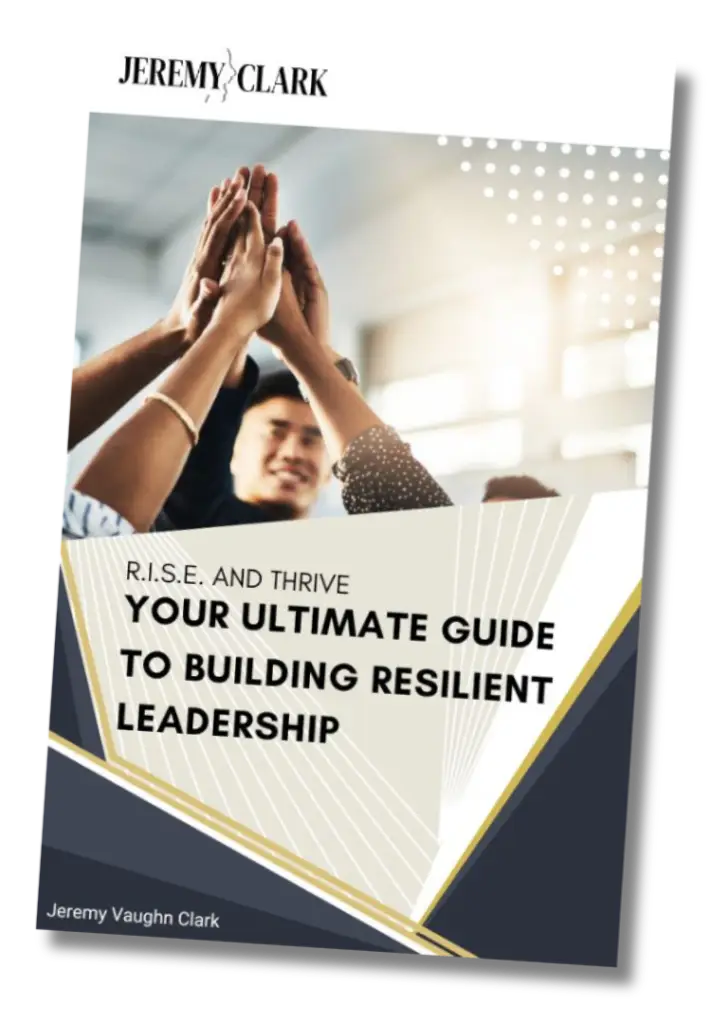In today’s fast-paced and ever-changing business environment, emotional intelligence (EI) is a crucial skill for effective leadership. Emotional intelligence for leaders is the gateway to growth and results for a team with a greater goal. Leaders who possess high emotional intelligence can navigate complex interpersonal relationships, manage their own emotions, and inspire their teams to achieve greater success. In this blog post, we’ll explore practical tips for developing emotional intelligence, focusing on self-awareness, self-regulation, empathy, and social skills. By enhancing these areas, you can become a more effective leader and create a positive impact on your team and organization.
Understanding Emotional Intelligence
What is Emotional Intelligence?
Emotional intelligence is the ability to recognize, understand, and manage our own emotions while also being able to recognize, understand, and influence the emotions of others. According to Daniel Goleman, who popularized the concept, emotional intelligence consists of five key components: self-awareness, self-regulation, motivation, empathy, and social skills (Goleman, 1995). These components work together to help individuals navigate social complexities, build strong relationships, and make informed decisions.
To simplify, enhancing emotional intelligence helps you deal with social drama, make good friends, and not make bad decisions.
Why Emotional Intelligence for Leaders Is Important

Leaders with high emotional intelligence are better equipped to handle stress, resolve conflicts, and motivate their teams. Research has shown that emotional intelligence is a significant predictor of leadership success and overall job performance (Goleman, 1998). By developing emotional intelligence, leaders can create a more positive work environment, improve team collaboration, and drive organizational success. Making your team feel heard, understood, and empowered drives growth and results for team objectives.
Developing Self-Awareness
What is Self-Awareness?
Self-awareness is the ability to recognize and understand your own emotions, strengths, weaknesses, values, and drivers. It involves being mindful of how your emotions affect your thoughts and behaviors and how they impact those around you. Self-awareness is the foundation of emotional intelligence, as it allows you to understand yourself better and make more informed decisions. When you understand yourself better, you can then make progress toward understanding others because you will be in better control of outward expressions.
Practical Tips for Enhancing Self-Awareness
1. Practice Mindfulness
Mindfulness involves paying attention to the present moment without judgment. By practicing mindfulness, you can become more aware of your thoughts and emotions and how they influence your behavior. Start by setting aside a few minutes each day for mindfulness meditation or simply taking deep breaths and focusing on the present moment.
2. Keep a Journal
Journaling is an effective way to reflect on your thoughts, emotions, and experiences. Each day, write down your feelings and observations about different situations. This practice can help you identify patterns and triggers, leading to greater self-awareness.
3. Seek Feedback
Ask for feedback from trusted colleagues, mentors, or friends. Honest feedback can provide valuable insights into how others perceive you and highlight areas for improvement. Use this feedback to enhance your self-awareness and make necessary adjustments
Enhancing Self-Regulation
What is Self-Regulation?
Self-regulation is the ability to manage your emotions and impulses, especially in challenging situations. It involves staying calm, composed, and focused, even when faced with stress or adversity. Self-regulation is crucial for leaders, as it enables them to respond thoughtfully rather than react impulsively.
Practical Tips for Improving Self-Regulation
1. Pause and Reflect
When you encounter a stressful situation, take a moment to pause and reflect before reacting. This brief pause allows you to consider your response and choose a more constructive approach. Practice deep-breathing exercises or count to ten to help calm your mind.
2. Develop Stress-Reduction Techniques
Engage in activities that help reduce stress and promote relaxation, such as exercise, yoga, or hobbies you enjoy. Regular physical activity can improve your mood and help you manage stress more effectively.
3. Maintain a Work-Life Balance
Striking a balance between work and personal life is essential for self-regulation. Make time for activities that bring you joy and relaxation outside of work. Setting boundaries and prioritizing self-care can help you stay focused and composed.

Building Empathy
What is Empathy?
Empathy is the ability to understand and share the feelings of others. It involves putting yourself in someone else’s shoes and recognizing their emotions and perspectives. Empathy is a critical component of emotional intelligence, as it helps leaders build strong relationships and create a supportive work environment.
Practical Tips for Developing Empathy
Practice Active Listening
Active listening involves fully concentrating on the speaker, understanding their message, and responding thoughtfully. Show genuine interest in what others are saying, ask clarifying questions, and provide feedback. This practice demonstrates empathy and builds trust.
Observe Non-Verbal Cues
Pay attention to body language, facial expressions, and tone of voice. These non-verbal cues can provide valuable insights into someone’s emotions and help you respond with empathy.
Put Yourself in Others’ Shoes
Try to see situations from others’ perspectives. Consider their feelings, motivations, and challenges. This exercise can help you develop a deeper understanding of their experiences and respond with compassion.
Improving Social Skills
What are Social Skills?
Social skills are the ability to interact effectively with others, build relationships, and navigate social situations. These skills include communication, conflict resolution, teamwork, and networking. Strong social skills are essential for leaders, as they help foster collaboration and create a positive work environment.
Practical Tips for Enhancing Social Skills
1. Communicate Clearly and Effectively
Practice clear and concise communication. Ensure that your messages are easy to understand and avoid jargon or ambiguous language. Active listening and open-ended questions can also enhance your communication skills.
2. Resolve Conflicts Constructively
Approach conflicts with a problem-solving mindset. Focus on finding mutually beneficial solutions and maintaining positive relationships. Practice empathy, active listening, and compromise to resolve conflicts effectively.
3. Foster Teamwork and Collaboration
Encourage collaboration and teamwork within your organization. Create opportunities for team members to work together on projects and recognize their contributions. Building a culture of collaboration can strengthen relationships and improve overall performance.
Conclusion
Developing emotional intelligence is a continuous journey that requires self-awareness, self-regulation, empathy, and social skills. By enhancing these areas, you can become a more effective leader and create a positive impact on your team and organization. Start implementing these practical tips today, and watch how your leadership abilities and team dynamics improve.
Remember, emotional intelligence is not only about managing your own emotions but also about understanding and influencing the emotions of others. As you develop these skills, you’ll find yourself better equipped to navigate complex interpersonal relationships, resolve conflicts, and inspire your team to achieve greater success.
Unlock Your Leadership Potential with My Free Guide!

Are you ready to transform your leadership skills and create a resilient team? Download our exclusive guide, “R.I.S.E. and Thrive: Your Ultimate Guide to Building Resilient Leadership,” and start empowering your team today.
In this comprehensive guide, you’ll discover:
- Practical strategies to enhance your emotional intelligence
- Tips for building personal and team resilience
- Techniques for effective conflict resolution
- Insights on fostering a culture of trust and collaboration
Don’t miss out on this opportunity to elevate your leadership. Click here to download your free guide now!
About the Author

Jeremy Vaugn Clark is a dynamic motivational speaker specializing in personal leadership and resilience. With an MBA from Cal Poly Pomona and extensive experience in corporate human resources, sales leadership, and various industries, Jeremy empowers leaders and teams to achieve their goals through emotional intelligence and effective communication. He is also the author of “Did You Know? You Are The Shit!” where he explores the power of positive affirmations. Connect with Jeremy for inspiring presentations that drive growth and success.
References
- Goleman, D. (1995). Emotional Intelligence: Why It Can Matter More Than IQ. Bantam Books.
- Goleman, D. (1998). Working with Emotional Intelligence. Bantam Books.
